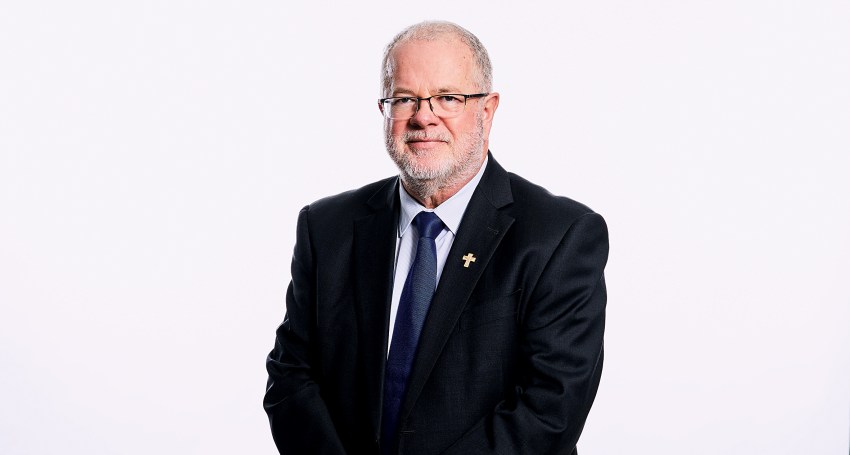Clergy reflect on pastoral reality of VAD
News
The moral dilemma “forced upon” clergy and pastoral carers by the commencement of the Voluntary Assisted Dying (VAD) Act in South Australia has been highlighted by bioethicist Dr Joseph Parkinson.

In two presentations to priests and chaplains in the Adelaide Archdiocese, Dr Parkinson said some Catholics experienced a tension between following Church teaching on the sacredness of life and providing pastoral care to someone who might be contemplating VAD and who is “still a brother and sister in Christ”.
He stressed that, in the words of Pope Francis, “euthanasia is a grave violation of the law of God, since it is the deliberate and morally unacceptable killing of a human person”.
Advertisement
But the West Australian priest also pointed to the importance of pastoral care which begins in “accompaniment and listening to the person, their subjective experience, their hopes and their fears”.
Dr Parkinson was part of a working group that produced a draft document on Christian accompaniment of people considering assisted suicide in response to the increasingly complex pastoral environment following the passage of euthanasia and assisted dying laws in all Australian states. The bishops are considering the document which is yet to be distributed.
It covers issues such as sacraments, prayers for the dying and Christian burials in relation to VAD.
Dr Parkinson said his experience with four cases in Western Australia, where the scheme was implemented two years ago, has led him to understand that people don’t always see euthanasia as a rejection of Catholic teaching, or as a rejection of God.
Rather, he said they were often motivated by fear which was “non-rational so cannot be resolved by logic or by “catechesis”.
“Sometimes the grace of the sacraments can help the person work through their fears,” Dr Parkinson said.
“The symbols, rhythms, words of liturgy can touch the person at those deeper levels.”
He referred to a Catholic man in his late 70s who had been diagnosed with terminal cancer and told by his doctor that his death would “not be pleasant”.
“He asked me what his options were and I told him about palliative care and hospice care but he’d never heard of it…he asked about VAD and I told him the Church has a problem with VAD,” Dr Parkinson said.
“But I added that I’m always here to help you.”
After giving him the sacrament of anointing of the sick, the man was “visibly relieved” and didn’t end up going through with VAD.
“He was sufficiently strengthened, there was this psychic energy that gave him the strength to go on,” Dr Parkinson said, adding the man later died in a hospice.
As a trustee and consulting ethicist to the St John of God Health Care group, Dr Parkinson was involved in three debriefs following requests for VAD by patients in their care. He said in each case there had been poor communication between the patient and the hospital which resulted in a traumatic experience for everyone involved.
Advertisement
“There were clear signs of trauma in the staff who had been excluded by the family and patients, they felt terrible,” he said.
“The paradox is that as a Catholic hospital we don’t want doctors coming on our premises to administer VAD but if they do, we want to know about it to protect our staff.”
He said Catholic health providers require all doctors accredited to them to subscribe to Catholic Health Australia’s clear stance not to provide, assist or facilitate VAD in any form, but that didn’t necessarily prevent other doctors from visiting a patient informally.
While some priests and chaplains might not want to give the sacraments to someone contemplating VAD because it was “contrary to their conscience”, Dr Parkinson said he personally would prefer to “err on the side of charity and let God sort the rest out”.
“They haven’t committed any sin, they may be thinking about something that is objectively sinful but they haven’t actually done it,” he added.
“So how can you prevent them from receiving a sacrament…no-one has sufficiently addressed that.”
He suggested that a priest or pastoral carer who had any doubts or uncertainties about providing pastoral or sacramental care should seek advice and support from an appropriate person nominated by the bishop and charged by him with providing care for pastoral caregivers.
Dr Parkinson said every State that had introduced VAD would now begin a process of amending the legislation.
“All the amendments will be in the same direction, it won’t be to tighten them up, it will be to loosen them, that’s what’s happened in every jurisdiction…the rules have just got looser and looser,” he said.
“For me that says Catholic health care must be absolutely rock solid in the two commitments that we make – one is the commitment to be faithful to Catholic teaching, the other is a commitment to care for anyone who comes to us looking for care.
“We have to be prepared to inhabit the minefield in between those two positions. We have to have a stomach for complexity and be prepared to do the hard work.”
VAD commenced in South Australia on January 31. There is an institutional conscientious objection clause in the SA legislation but Dr Parkinson said in most other states, governments had given an undertaking not to force Catholic health care providers to participate.
“But that doesn’t mean we can impede VAD either,” he said.








Comments
Show comments Hide comments